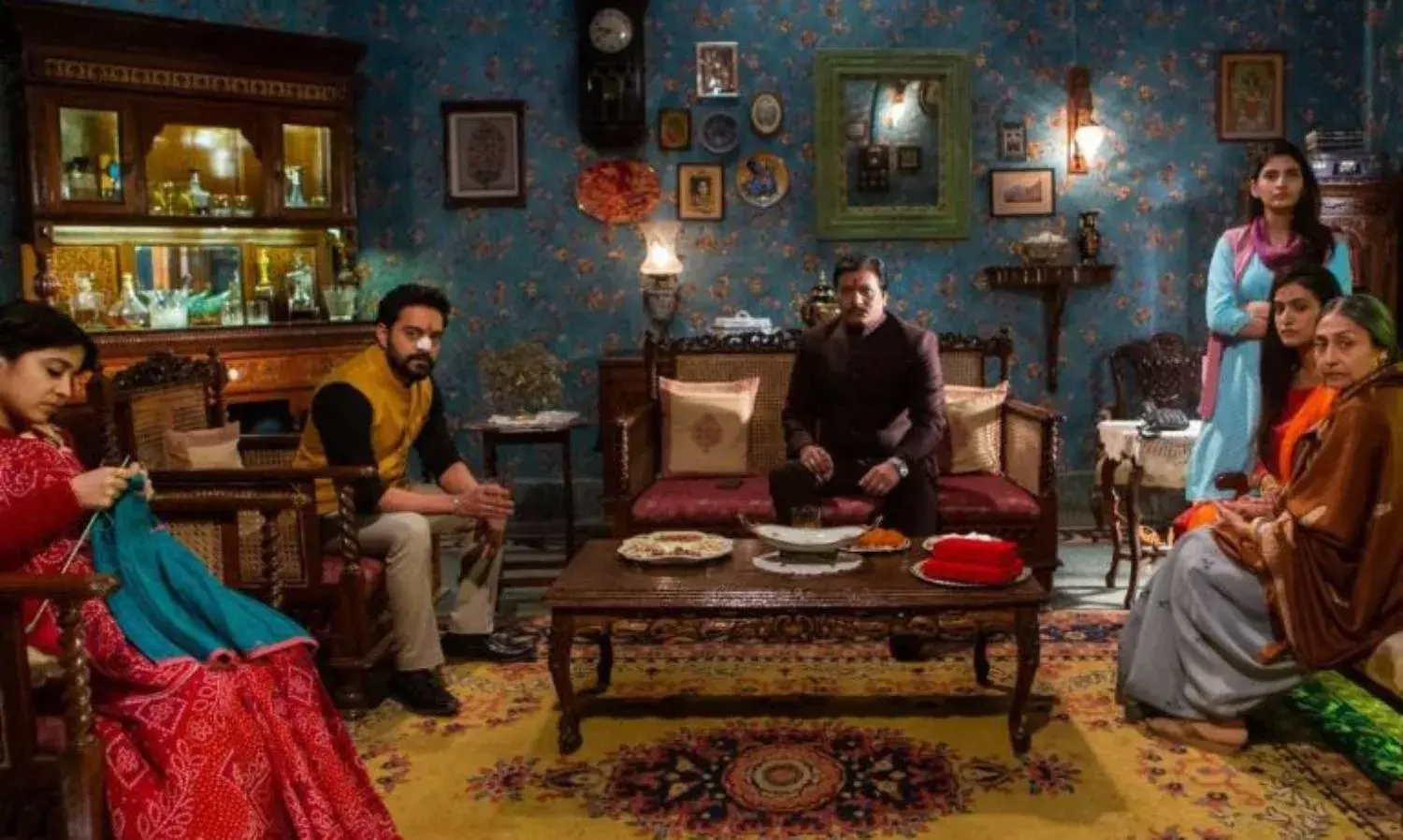Raat Akeli Hai - A Contemporary Noir Classic?
Directed by Honey Trehan starring Nawazuddin Siddiqui

In J.P. Dutta’s Ghulami (1985) the system of a village is shown as extremely violent, patriarchal and corrupted. Protagonist Ranjit Singh Choudhary (Dharmendra) belongs to the Jat peasant caste, whose members the Thakur feudal lords often brutalise. They humiliate and rape the women characters, reducing them to powerless indignity in a system governed by a caste hierarchy. Then the Hero takes a final call, and courageously fights the villainous Thakurs to end their criminal world.
Today, thirty-five years after Ghulami, Honey Trehan’s Raat Akeli Hai shows a powerfully realistic picture of India’s mofussil towns - and things haven’t changed much. The system is still intact, with only minor improvisations in the power relationships.
Raat Akeli Hai is a daring whodunit, different from the traditional Bollywood revenge thrillers. A murder takes place in an old Haveli of Lucknow’s feudal lord and the investigation falls to Inspector Jatil Yadav (Nawazuddin Siddiqui playing an honest cop). He has two suspects at first but as the story develops the characters reveal their dark secrets, including his higher-ups. But Yadav not only succeeds in unearthing the dirty truth, he also emerges a better human being.
It is a murder mystery that also unveils the grotesque social structures in which the majority of us survive. Set in the dusty roads of Lucknow, Kanpur and Meerut, it seems to want to demonstrate these places’ crude underdevelopment. It seems these towns have yet to benefit from the neoliberal economic reforms. The police stations are ill-organised and rustic, the localities are poor and dirty and the streets crowded and without discipline. Even the Haveli of the feudal master is crumbling. Every one of its residents has a medieval sense of attire and attitude.
The director’s major intention is not to show the audience a murder mystery, but to open the dark secrets of these overtly feudal establishments, big households that are dens of nepotism and corruption, and crudely sexist and casteist. Remember the feudal household in Shyam Benegal’s Nishant (1975) or Prakash Jha’s Mrityudand (1997)? Similarly here also we see a number of female characters undergoing terrible acts of male exploitation and sexual violence.
The story revolves around Radha (Radhika Apte), evidently low-born, trafficked as a girl from Chambal, physically abused by her master and humiliated by her lover. The other women of the Haveli witness these brutalities but are powerless to respond. They are also surviving sexual exploitation and feudal male violence. It is impossible to escape.
The choice of Jatil Yadav as protagonist is interesting. In a hundred years of Hindi cinema, on only a handful occasions have we seen a non-upper-caste-Hindu hero on screen. Even in the recently released series Patal Lok, the makers cursorily avoid the opportunity to portray the main lead as an honest Gujjar police officer.
In general the Yadav surname has been used to represent villains - like Sadhu Yadav in Prakash Jha’s Gangajal (2003) and Bacchu Yadav in E. Nivas’s Shool (1999) - or as the hero’s sidekick. But here Jatil Yadav is a courageous and honest cop, played by a Muslim no less. He is humiliated, attacked and discouraged, but he discovers the filthy truth with grit and blood.
The story is set in contemporary times. It shows the old caste and familial relationships being disrupted. In the new institutional arrangement, the fearless police officer fights to deliver justice, very uncompromisingly.
The women characters, though attacked and oppressed, have desires including the appetite for violent revenge. They are not docile but calculating beings. In the climax the male and female lead form a cordial collective, showcasing their liberation from the feudal system.
Director Honey Trehan’s first film, Raat Akeli Hai has a social purpose and a feminist intent that make it a better crime mystery. Not content with finding the murderer, it wants to discover all the layers of illegitimate power and authority.
The film lays bare the scandalous compromises at the heart of a powerful name. It has all the ingredients of a contemporary noir classic.



